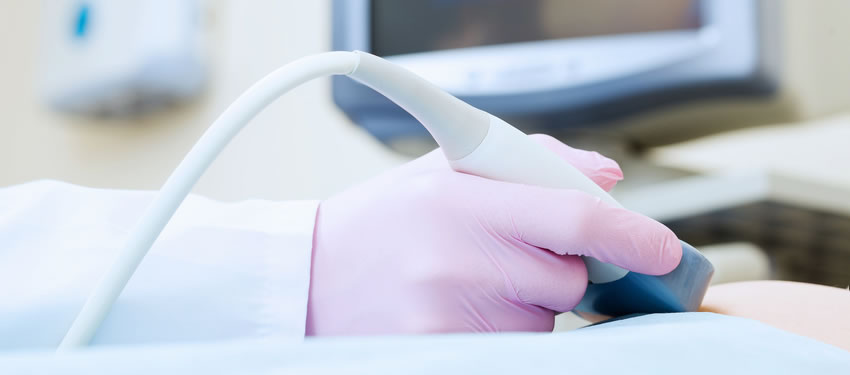Fertility Assessment and Treatment Options

Learn about advanced fertility testing and personalized treatments available for overcoming infertility challenges.
Comprehensive Fertility Testing for Improved Outcomes
To effectively address fertility challenges and support individuals or couples in starting their families, it’s essential to gain a complete understanding of the underlying issues. By diagnosing the root cause of infertility, specialists can create personalized treatment plans to maximize the chances of a healthy pregnancy.
Experts in the field use decades of experience and the latest technologies to thoroughly assess fertility issues, ensuring every aspect of a patient’s condition is considered before creating a tailored treatment plan. Every detail is double-checked to ensure the most accurate diagnosis and the best chances for a successful pregnancy.
Ovulatory Function Evaluation: A Key Step
In about 20% of infertility cases, ovulation problems are found to be a primary cause. Ovulation issues, such as anovulation (when a woman does not ovulate), are a major barrier to conception. That’s why evaluating ovulatory function is a critical first step in determining the cause of infertility.
Through careful monitoring of the ovulation cycle, healthcare providers can detect any irregularities and create a targeted plan to improve fertility.
Tests to Assess Ovulation
During an ovulatory function evaluation, various tests may be performed to gain an accurate understanding of the menstrual cycle, including:
- Basal Body Temperature (BBT): Monitoring body temperature to detect ovulation timing.
- Endometrial Biopsy: Examining the lining of the uterus to check for conditions that may prevent implantation.
- Serum Progesterone Test: Measuring progesterone levels to ensure the uterus is prepared for implantation.
- Hormone Testing: Analyzing hormone levels (like prolactin and thyroid hormones) that could impact ovulation.
The results from these tests guide the next steps in the treatment process, allowing for a more personalized and effective fertility plan.
Advanced Imaging to Detect Fertility Issues
Using advanced imaging techniques, fertility specialists can get a clear view of the reproductive system to identify potential issues like blockages or abnormalities that might be causing fertility problems. Noninvasive ultrasound exams and other imaging tools help provide detailed information about the uterus and fallopian tubes.
Imaging Techniques for Fertility Diagnosis
- Transvaginal Ultrasound: A noninvasive way to examine the uterus and detect growths like fibroids or polyps that may interfere with fertility.
- Hysterosalpingogram (HSG): An X-ray procedure using contrast dye to check for blockages in the fallopian tubes or abnormalities in the uterus.
- Hysterosonogram (HSN): A saline infusion technique that helps identify issues within the uterus without using radiation.
These procedures are key in understanding any structural issues and guiding treatment options that will enhance the chances of conception.
Fertility Hormone Testing: Ensuring Hormonal Balance
Hormonal imbalances can be a significant factor in infertility. Specialists typically conduct simple blood tests to evaluate hormone levels and their effects on fertility. Some of the critical hormones tested include:
- Follicle-Stimulating Hormone (FSH): Determines egg supply in women or testicular function in men.
- Estradiol: A form of estrogen that influences ovarian function and egg quality.
- Luteinizing Hormone (LH): Assesses ovulation and sperm production.
- Progesterone: Prepares the uterine lining for pregnancy and ensures proper ovulation.
- Prolactin and Testosterone: Both impact sexual and reproductive health in men and women.
Evaluating these hormones provides a comprehensive view of fertility status and helps design effective treatment plans.
Semen Analysis: A Crucial Part of Male Fertility Testing
Male fertility plays an equally important role in conception, and semen analysis is one of the simplest tests to detect issues. This test examines various factors of the semen sample, such as:
- Sperm count and concentration
- Sperm motility (ability to swim)
- Semen volume
- Fructose levels and pH balance
The results of a semen analysis help identify potential male fertility issues and shape the direction of treatment.
Personalized Fertility Treatment Plans
The insights gathered from these evaluations and tests help fertility specialists create individualized treatment plans that directly address the patient’s unique challenges. By working closely with a healthcare provider, patients can take meaningful steps toward achieving their goal of starting or growing their family.
For more information or to schedule an appointment, reach out to a fertility specialist who can guide you through the process and offer the best possible care for your situation.